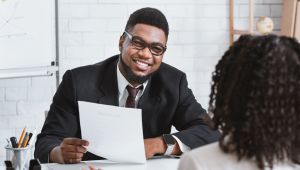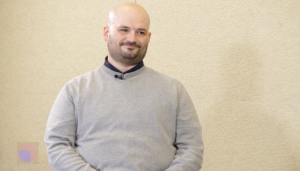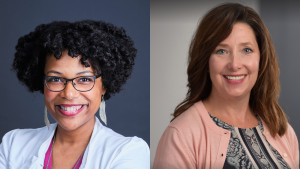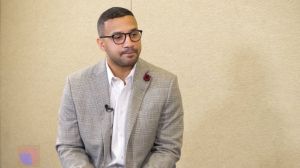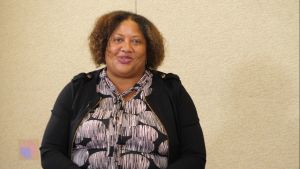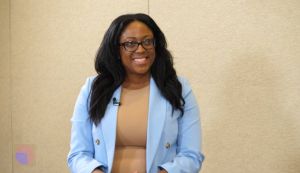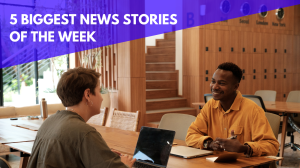Following the murder of George Floyd, many companies got more intentional and focused on the diversity, equity and inclusion efforts than ever before. For some, that meant hiring their first Chief Diversity Officer while others had to experience a shakeup in leadership around diversity entirely.
For Chief Diversity Officers, the last few years has been tumultuous. Some have sought new roles as former employers failed to deliver on promises and others chased new challenges where they felt they could make a greater impact, find better resources or simply grow their own careers.
This interview is the first in a series of articles dedicated to catching up with CDOs who have moved in recent years to discuss their experience, what the move has done for them, the work they’re doing and the advice they have for other aspiring or current CDOs.
Our first interview is with Humana’s Carolyn Tandy, Chief inclusion and Diversity Officer at Humana. A certified Diversity and Inclusion professional from Cornell University, Tandy received her master’s degree in Management and Leadership from Webster University. Her career has seen her work not only in healthcare and insurance, but hospitality and more than a decade working for U.S. congressmen, the Democratic National Committee and the Department of Energy.
Interview with Carolyn Tandy
Fair360, formerly DiversityInc: You joined Humana a little more than a year ago from Texas Roadhouse where you were a Director of Diversity and Inclusion. What led you to Humana? What did you find interesting about the prospect of working at Humana and shifting industries given that healthcare and insurance is so different from hospitality?
Carolyn Tandy: At Texas Roadhouse, I led the company’s national diversity and inclusion strategy for more than 45,000 employees across 58 markets. I’m proud of what we accomplished in shaping culture, workforce development and learning, and growing the diversity of our talent pipeline.
Humana’s corporate headquarters are in Louisville, Kentucky — the city I call home — and I’ve always had some connection to Humana through previous work experiences, community work and mentors and peers. It is one of those mentors, Maria Hughes, that led me to Humana. Maria served in my current role at the company before me. She encouraged me to consider Humana as I advanced in my career and set the wheels in motion for me to pursue the opportunity. I am incredibly proud to follow in her footsteps to advance this important work.
Shifting industries from steaks and hospitality to healthcare and insurance has been both exciting and challenging. In every work role throughout my career, I have always been dedicated to advancing inclusion, belonging and diversity, so the two roles are connected in that sense.
What really drew me to Humana is the company’s commitment to well-being and health of all people — our employees, our members and patients, the communities we serve, the healthcare system and the environment. Our goal is to help everyone access the tools necessary to achieve their best health while advancing equity both inside and outside of our walls. We take the work of building a more equitable healthcare system and investing in the health and sustainability of the environment around us very seriously.
What sort of impact has the move had for your career and how would you describe your time with Humana thus far?
It’s hard to believe that I celebrated one-year with Humana in July. As I reflect on the milestone, I can’t help but think about that saying often shared by parents — the days are long, but the years are short. It really illustrates my feelings about my first year with Humana.
I’m excited about the progress we’ve made, and I’m committed to the work that lies ahead. The team and the scope of our work has expanded significantly since I started here. We have recently refreshed our strategy and have a clear road map of where we are going.
While there are many ways to focus in on diversity, equity and inclusion, my philosophy is centered in caring for my work family first. Our company’s primary responsibility is to our members, patients and providers, so my team must care for the people who care for the people. Does every single heartbeat at Humana feel that they matter to us? Do they have opportunities to grow, develop and make an impact? It is my team’s job to make sure these things are known, felt and accomplished for our people.
REGISTER: Join us for our annual Women of Color and Their Allies event and hear more from Humana!
When employees feel included and cared for, the impact on their work and their ability to care for others becomes amplified. Inclusion and Diversity isn’t a single program, commitment or team. It is a set of values that we strive to infuse into every aspect of this company’s work.
As you can imagine, the impact this role has had on my career has been significant. Having the opportunity to lead these efforts for a company as large as Humana has allowed me to broaden my influence and reach exponentially. I’m excited to see what we will achieve as a company and the larger impact this will have on the health and well-being of our members and patients.
What are some of the initiatives you’ve been excited to work on since joining Humana and what are some of the lessons that you’ve learned through that work?
In my first year at Humana, we’ve implemented structural and organizational changes to the Inclusion & Diversity team to better position us to drive our business purpose and strategy forward. Our team has grown, and we’ve aligned on annual I&D goals for the company with our overall business strategy and objectives.
When I think of some of the initiatives I’ve been excited to work on since joining Humana, it’s challenging to limit my response. To highlight a few:
- Humana ranked 9th in the Fair360, formerly DiversityInc Top 50 Companies for Diversity this year, moving up from 13th last year — and breaking into the top ten has been one of the most memorable experiences for me thus far.
- Refreshing our Executive I&D Council by increasing the number of Council seats to 14 to ensure the inclusion and empowerment of employees’ voices and that diverse points of views are represented from all levels or the organization.
- Our Diverse Talent Strategy demonstrates our commitment to creating equitable access and opportunity for all people to build a more diverse employee population through growing our diverse talent pipeline and external partnerships, while also creating intentional career mobility. A tangible example of this strategy in action is Humana’s recent sponsorship of the Omega Psi Phi Fraternity’s national Conclave in Charlotte, North Carolina. This event provided the awesome opportunity to feature our job vacancies, provide onsite health screenings, highlight our new Centerwell Primary Care Brand and celebrate and honor our seniors. One Humana employee shared that “it gives me such pleasure to work for a company that supports Inclusion and Diversity by sponsoring such events!”
- Our Supplier Diversity Program supports the growth and development of small and diverse businesses with the goal to attract qualified, certified vendors and suppliers who reflect our customers, employees and communities we serve. Supplier diversity drives innovation. Our Mentor Protégé Program is uniquely designed to facilitate mentorships between various Humana departments and external small and diverse businesses. Learn more here.
- Our Network Resource Groups cultivate our community of belonging by providing connection to employees across the enterprise. With 10 Network Resource Groups at Humana led by employees, our NRGs work to impact Humana’s culture, marketplace and the communities we serve. Currently 30% of Humana’s associates are in at least one NRG, representing more than 15,000 employees.
How do you see your work evolving at Humana and what excites you about the future?
The nature of DEI work is always evolving. We must always evolve to meet the needs of our people, of our members and our communities. The work is never done.
When I think about the future, I keep coming back to that one thing that sets us apart — and that is our culture of belonging at Humana. Really caring for each other — every employee, every member, every community. The last few years have changed how and where we work and have led us to rethink what inclusion and belonging means. Building that sense of belonging for each person keeps me motivated every day.
Building our community of belonging at Humana requires a multi-faceted approach with multiple points of connection. As we continue to work and collaborate in new ways, we know that how we engage our employees cannot be a one size fits all approach. Some of our points of inclusion are more formal, such as our previously mentioned Network Resource Groups. Others are less formal, such as our employee-formed mindfulness group, which offers courses on mindfulness, meditation and positive habit building.
Another example is a group I personally belong to called “Thriving Thursdays,” an informal community of Black women employees who meet on Thursdays to uplift and hold together our unique culture for work, life and everything in between. I love that this gathering offers the opportunity to connect with others outside of a given team or department with no hierarchy.
We also have internal Humana associate and leader-driven radio programming to keep people informed of what’s happening in the Humana streets and connection back to the greater community. We offer resources for more formal relationships, such as mentorship and sponsorship to encourage leaders to advance inclusive behaviors for the impact of their teams. I am excited to see how cross-connections continue to enhance and drive innovation in the ways we work together.
What advice do you have for aspiring or current Chief Diversity Officers who are thinking about moving from where they are? What do they need to think about as they consider companies, negotiations and teams?
First, I would dig deep and determine your primary motivation. You should ask yourself, why do you really you want to move to another company? Is it to gain new experience? Is it for salary? Is it to change industries? Is it to lead a larger team? Is it to reach a higher purpose? Answering key questions will start you off being truthful with yourself.
Next, I would recommend doing extensive research on any company you are considering. Not all companies are made alike in their commitment to DEI or to their people. Connecting with your network to do research can help create a more realistic picture of the company’s aspirations and efforts.
Ask questions during the interview process — it is as much for you as it is for them! Try to learn about the company’s level of commitment — is it substantial and concrete or is it performative and unstable? Ask about the budget and your structural resources. Look up their diverse spend for the previous year. Ask about talent acquisition and how connected will that work be to your area.
Also, learn about the reporting structure. Some companies have the CDO leading from the top; others have the work within HR or Legal — both have pros and cons depending on where the center of power is.
Lastly, I would make sure the organizational motive for doing the work matches your perspective and direction. The work is hard enough — you certainly want to be in a situation where the tide can row with you and not against you. That’s not to say you should shy away from a challenge. Sometimes a change in leadership is just what is needed to get the stuck unstuck. You are a leader, so be prepared to lead.






